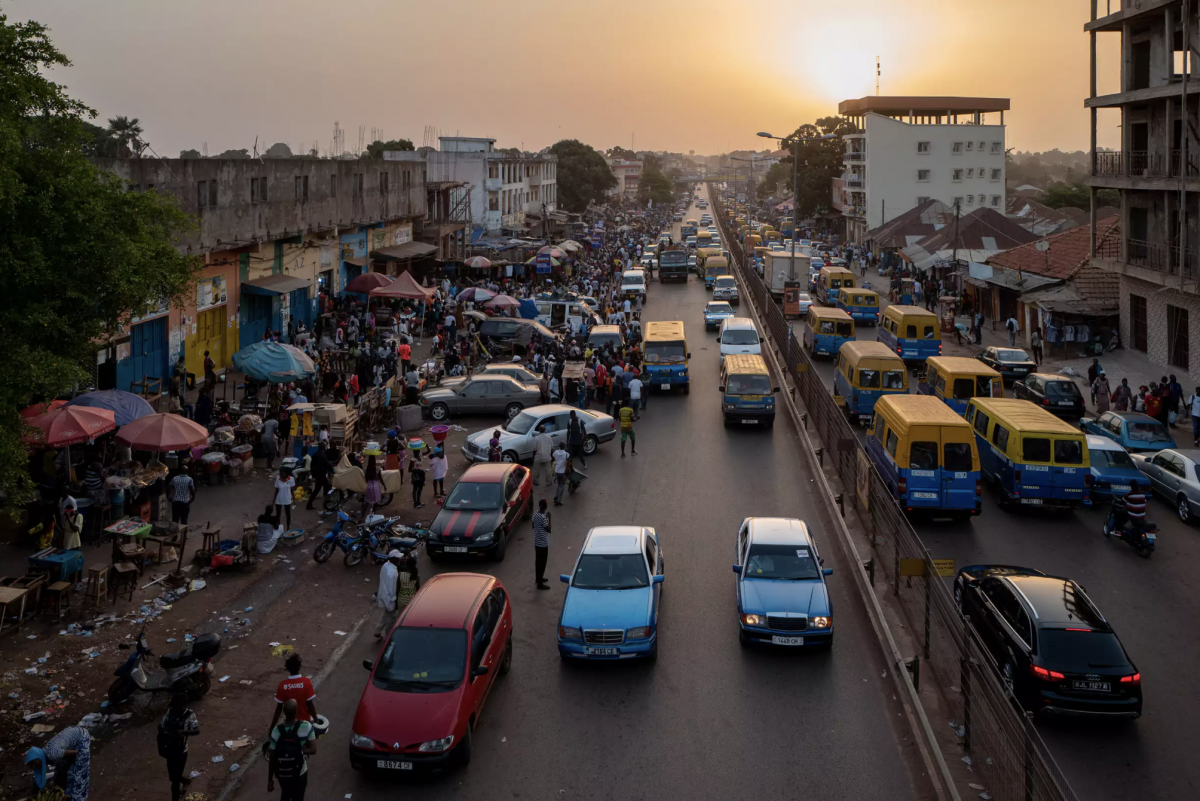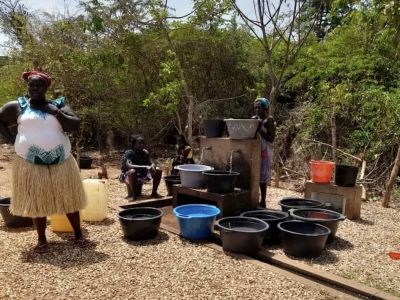Supporting Guinea Bissau to advance their NAP Process
Project Overview
Jan 2014
Government of Guinea-Bissau officially requests support from the NAP-GSP to advance their NAP
Feb 2014
Guinea-Bissau initiates the NAP process and holds a workshop to introduce stakeholders and government representatives to the process
Apr 2014
Delegation from Guinea-Bissau attends the NAP-GSP Africa Regional Training Workshop (Anglophone) in Addis Ababa, Ethiopia
Sep 2015
Guinea-Bissau submits their Intend Nationally Determined Contribution (INDC) to the Paris Agreement
Jun 2016
NAP-GSP supports the Government of Guinea-Bissau with a second workshop to further enhance stakeholders’ understanding of the NAP process and outline priority next steps
Dec 2016
A Stocktaking Report and a preliminary roadmap for advancing the NAP process in Guinea-Bissau are developed
Jul 2018
A Readiness and Preparatory Support Proposal is submitted to the GCF for potential funding for the NAP process
Oct 2018
Guinea-Bissau ratifies the Paris Agreement
Country background, Sustainable Development Goals and Paris Agreement
The Republic of Guinea-Bissau is considered a Small Island Developing State (SIDS) and is located on the West African coast. It also consists of an archipelago – the Bijagos – made up of more than 100 islands. Guinea-Bissau is one of the world’s poorest and most fragile countries, ranked 177 out of 189 countries assessed in the Human Development Index (2018), with two out of three people living below the poverty line. Changing climatic conditions along with the country’s limited capacity to adapt, and the already vulnerable socio-economic context in which its people live in threaten to exacerbate these dynamics, and as a result, Guinea-Bissau is recognised as one of the most vulnerable countries to climate change.
In the coming decades, temperatures are projected to rise and droughts and floods will likely become more extreme. Precipitation may become more volatile, i.e. increasingly frequent torrential rains over a short time period. A higher frequency of extreme climatic events is projected to result in more catastrophes, through loss of crops and damaged infrastructure, while the reliability and regulation of water supply is expected to decrease. As a country highly dependent on subsistence agriculture, as well as cashew exports, building resilience to climate impacts in the agricultural sector is of critical importance and essential to safeguard development efforts that aim to pave the way towards achieving the Sustainable Development Goals. Climate change is already impacting the country in the form of biodiversity loss, desertification and land degradation, presenting substantial and real threats to all vital sectors, constraining economic growth, and exacerbating inequalities. Furthermore, sea-level rise exposes the population to risks of flooding, saltwater intrusion, shoreline changes, and coastal erosion. These risks may lead to the disappearance of beaches, farming areas, and vegetation, as well as of public and private assets such as road and tourism infrastructure, government buildings, schools, medical facilities, homes, and even entire villages.
The Terra Ranka (meaning new beginning) is the Strategic and Operational Plan of the Government of Guinea-Bissau (2015-2020). This is the overarching development plan that focuses on governance and peace, infrastructure, industrialisation, urban and human development, and biodiversity. It also outlines that agri-business, fisheries, tourism, and a transparent and sustainable use of the country's mineral resources are key economic drivers and should be priority sectors to protect from climate change. Other critical documents that focus more specifically on climate change adaptation are the First (2005), Second (2011), and Third (2018) National Communications to the UNFCCC, and the Nationally Determined Contribution (NDC) submitted to the Paris Agreement. The NDC outlines a number of climate change adaptation targets such as: (i) to increase the percentage of protected areas from 15 to 26 percent, and ensure it is managed well; (ii) develop an Integrated Management Programme for the Coastal Zone by 2025; and (iii) have 80 percent renewable energy in the national energy mix by 2030. There are many other comprehensive targets outlined in Guinea-Bissau's NDC, with an accompanying set of planning processes to guide the implementation and monitoring of interventions.
How has the NAP-GSP supported to date?
|
Conducted a mission to
Guinea-Bissau
|
The mission was designed to take stock of the current climate change adaptation interventions that were relevant to the NAP process. On 23 June 2016, NAP-GSP supported the government to organise a workshop to further advance the NAP process, which was attended by over 30 officials representing 15 institutions. Specific aims of the workshop were to present the difference between a NAP and NAPA – a National Adaptation Programme of Action – outline guidelines and elements of a NAP, and to discuss the actual priorities of the NAP with the stakeholders.
|
|
Developed a Stocktaking
Report based on mission
and workshop
|
Based on the stocktaking mission, a Stocktaking Report was produced in consultation with all key stakeholders. This included a roadmap outlining the processes and objectives needed to develop the NAP. The workshop resulted in 38 specific adaptation priorities which should be considered in the formulation of a NAP project.
|
|
Helped to build capacity
and facilitate access to additional climate finance
|
Specifically, through supporting the preparation of a Readiness and Preparatory Support Proposal, to be submitted to the Green Climate Fund, outlining a NAP project and request for funding. The “Establishing a National Adaptation Plan (NAP) Process for Guinea-Bissau” project proposal was finalised in April 2019 and is planned to be submitted to the GCF for review in later in 2019.
|
Project Details
News
April 2014, Addis Ababa - A slideshow presented by the Guinea-Bissau delegation at the NAP-GSP Africa Regional Training Workshop (Anglophone) in Ethiopia in 2014

 Guinea-Bissau makes gender, agriculture and tourism a priority in establishing its National Adaptation Plan
Guinea-Bissau makes gender, agriculture and tourism a priority in establishing its National Adaptation Plan 